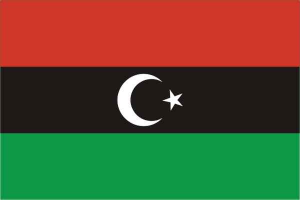Difference between revisions of "Language/Libyan-arabic/Grammar/Questions"
m (Quick edit) |
m (Quick edit) |
||
| Line 8: | Line 8: | ||
__TOC__ | __TOC__ | ||
<span link>Don't hesitate to look into these other pages after completing this lesson: [[Language/Libyan-arabic/Grammar/Plurals|Plurals]], [[Language/Libyan-arabic/Grammar/Pronouns|Pronouns]], [[Language/Libyan-arabic/Grammar/Conditional-Mood|Conditional Mood]] & [[Language/Libyan-arabic/Grammar/How-to-Use-Have|How to Use Have]].</span> | |||
== Question Words == | == Question Words == | ||
| Line 75: | Line 77: | ||
* [https://en.wikipedia.org/wiki/Libyan_Arabic Libyan Arabic Wikipedia page] | * [https://en.wikipedia.org/wiki/Libyan_Arabic Libyan Arabic Wikipedia page] | ||
* [https://en.wikipedia.org/wiki/Arabic_interrogative_particles Arabic Interrogative Particles Wikipedia page] | * [https://en.wikipedia.org/wiki/Arabic_interrogative_particles Arabic Interrogative Particles Wikipedia page] | ||
<hr>➡ If you have any questions, please ask them in the comments section below.<br>➡ Feel free to edit this wiki page if you think it can be improved. 😎 | <hr>➡ If you have any questions, please ask them in the comments section below.<br>➡ Feel free to edit this wiki page if you think it can be improved. 😎 | ||
| Line 85: | Line 86: | ||
}} | }} | ||
==Other Lessons== | |||
== | |||
* [[Language/Libyan-arabic/Grammar/Plurals|Plurals]] | * [[Language/Libyan-arabic/Grammar/Plurals|Plurals]] | ||
* [[Language/Libyan-arabic/Grammar/Give-your-Opinion|Give your Opinion]] | * [[Language/Libyan-arabic/Grammar/Give-your-Opinion|Give your Opinion]] | ||
| Line 98: | Line 98: | ||
{{Libyan-arabic-Page-Bottom}} | {{Libyan-arabic-Page-Bottom}} | ||
<span links></span> | |||
Latest revision as of 21:02, 27 March 2023
Hi Libyan Arabic learners! 😊
In this lesson, we will learn how to ask questions in Libyan Arabic. We will cover the question words (such as what, where, when, why, and how), as well as sentence structure to form questions.
Don't hesitate to look into these other pages after completing this lesson: Plurals, Pronouns, Conditional Mood & How to Use Have.
Question Words[edit | edit source]
In Libyan Arabic, the most common question words are:
| Question Word | Transliteration | Meaning |
|---|---|---|
| فين | fen | where |
| إيه | eya | what |
| إمتى | mtayy | when |
| ليه | lesh | why |
| كيف | kif | how |
Here are some examples to illustrate the use of these question words:
- إيه إسمك؟ (eya esmak?) - What is your name?
- ليه هيك الشارع مزدحم؟ (lesh haak esh-shari3 mazdham?) - Why is the street crowded like that?
- فين السوق؟ (fen es-suq?) - Where is the market?
- إمتى دخلت الجامعة؟ (mtayy dokhelt el-jam3a?) - When did you enter the university?
- كيف تكتب هذا؟ (kif tekteb haatha?) - How do you write this?
It is important to note that the word order in questions in Libyan Arabic is not changed compared to statements. Instead, a question particle "شنو" (shno) or "واش" (wash) can be added at the beginning of the sentence to indicate that a question is being asked.
Forming Yes/No Questions[edit | edit source]
Yes/no questions in Libyan Arabic are formed by starting a sentence with either "هل" (hal) or "أ" (a).
For example:
- هل تتكلم العربية؟ (hal ttkallam el-3arabiyya?) - Do you speak Arabic? (literally "Is it that you speak Arabic?")
- أنت موظف؟ (inti mawdhu3?) - Are you an employee?
Another way to form a yes/no question is by simply changing the intonation of a statement. For example,
- أنت موظف (inti mawdhu3) - You are an employee.
- أنت موظف؟ (inti mawdhu3?) - Are you an employee?
In the second sentence, the rising intonation indicates that it is a question.
Question Tags[edit | edit source]
Question tags are commonly used in Libyan Arabic to confirm a statement or to seek agreement from the listener. In Libyan Arabic, the most common question tags are "آ؟" (a?) or "أليس كذلك؟ " (alaysa kadhalik?)
For example:
- أنت من ليبيا، آ؟ (inti men Libya, a?) - You are from Libya, right?
- أنت تحب القراءة، أليس كذلك؟ (inti tbhib el-qira'a, alaysa kadhalik?) - You like reading, don't you?
Dialogue[edit | edit source]
Here is a dialogue to illustrate the use of questions in Libyan Arabic:
- Person 1: إيه جديد؟ (eya jdid?) - What's new?
- Person 2: ما فيها شي جديد، وأنت؟ (ma fiha shi jdid, w inti?) - Nothing new, and you?
- Person 1: فين رحت النهاردة؟ (fen roht en-neharda?) - Where did you go today?
- Person 2: رحت السوق، إنت فين رحت؟ (roht es-suq, inti fen roht?) - I went to the market, where did you go?
- Person 1: رحت النادي الرياضي، كيف كانت تجربتك فيه؟ (roht en-nadi riyadi, kif kanet tajribtak fih?) - I went to the sports club, how was your experience there?
- Person2: كانت تجربتي حلوة، أنا كنت بلعب كرة القدم، إنت شو عملت هناك؟ (kanet tajribti helwa, ana kont bleb kurat el-qadam, inti shu 3amalt honak?) - My experience was good, I was playing football, what did you do there?
Sources[edit | edit source]
➡ If you have any questions, please ask them in the comments section below.
➡ Feel free to edit this wiki page if you think it can be improved. 😎
